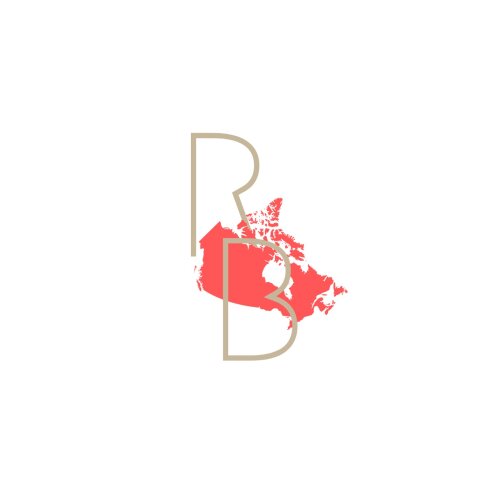Best Immigration Lawyers in Casablanca
Share your needs with us, get contacted by law firms.
Free. Takes 2 min.
List of the best lawyers in Casablanca, Morocco
Morocco Immigration Legal Questions answered by Lawyers
Browse our 2 legal questions about Immigration in Morocco and read the lawyer answers, or ask your own questions for free.
- What is the process of opening a visa services business in Casablanca?
- Hello. What are the requirements and process for opening a visa processing service business in Casablanca for foreigners? I’m an American citizen who’s married to a Moroccan women. Thank you!
-
Lawyer answer by mohammad mehdi ghanbari
Hello,Thank you for your inquiry. Opening a visa services business in Casablanca as a foreigner involves a multi-step process that combines company formation with personal immigration procedures. Below is a general overview of the requirements and the process you would...
Read full answer - What is the process of opening a visa services business in Casablanca for foreigners?
- Hello. I’m looking to get information on what are the requirements and process for opening a visa service processing business in Casablanca? I’m an American citizen. Thank yoi!
-
Lawyer answer by mohammad mehdi ghanbari
Hello,Thank you for your inquiry. Opening a visa services business in Casablanca as a foreigner involves a multi-step process that combines company formation with personal immigration procedures. Below is a general overview of the requirements and the process you would...
Read full answer
About Immigration Law in Casablanca, Morocco
Immigration law in Casablanca, Morocco, as in the rest of the country, is governed by the Moroccan Bureau of Immigration. Both entrance to and exit from the country, as well as matters of residency and citizenship, are subject to specific regulations. Non-residents wishing to stay in Morocco for more than 90 days must apply for a residency card, while those seeking to permanently immigrate or apply for Moroccan citizenship face a more complex legal process. It's also important to remember that laws related to immigration in Morocco may vary over time and can be complex, which often necessitates legal advice.
Why You May Need a Lawyer
Legal assistance may prove beneficial in various immigration-related situations. Some common scenarios involve applying for a residency card, seeking to extend a stay, or wanting to become a Moroccan citizen. Situations involving criminal charges or deportation also require a deep understanding of Moroccan immigration law. In such cases, the guidance of an experienced lawyer can be crucial. Additionally, lawyers can provide assistance in navigating the legal system, ensuring the correct paperwork is filed, and advocating on your client's behalf.
Local Laws Overview
In Casablanca, as in the rest of Morocco, a visitor can stay up to 90 days without a visa, after which they must apply for a residency card. If one intends to work or set up a business in Casablanca, a specific work permit is required from the Moroccan authorities. Applicants for Moroccan citizenship are typically required to have been residents in the country for at least five years. Any criminal charges could result in deportation or a ban from re-entry. Specific laws govern each aspect of immigration, and procedures must be followed strictly to ensure legality.
Frequently Asked Questions
1. How long can I stay in Casablanca, Morocco without a visa?
Visitors may stay up to 90 days in Morocco without a visa. An extension of the stay or residency card applications must be made if planning to stay longer.
2. What is a Moroccan Residency Card?
A residency card is a document that allows a foreigner to live in Morocco for more than 90 days. Applications for this card must be submitted to local authorities.
3. How do I apply for Moroccan citizenship?
Typically, a residency of at least five years is required to apply for Moroccan citizenship. The application involves various legal and paperwork processes, for which legal advice is often recommended.
4. Can I get deported from Morocco?
Yes, if you are charged with a crime or violate immigration laws, deportation is a possible consequence.
5. Can I work in Casablanca with a visitor’s visa?
No, a specific work permit is required to be legally employed in Casablanca, or anywhere in Morocco. Applying for this permit involves its own specific legal process.
Additional Resources
The Moroccan Bureau of Immigration is the primary resource for clear and comprehensive information on immigration law in Morocco. Local consular offices or international consulates in Morocco can also provide advice. Various non-governmental organizations in Morocco offer help to immigrants and can also act as helpful resources.
Next Steps
If you need legal assistance with immigration matters in Casablanca, it is recommended to hire a lawyer versed in Moroccan immigration law. Begin by researching potential lawyers, considering factors such as reputation, previous experience, and cost. Be prepared to provide comprehensive personal and background information, as this will help them better assess your unique situation and provide appropriate legal guidance.
Lawzana helps you find the best lawyers and law firms in Casablanca through a curated and pre-screened list of qualified legal professionals. Our platform offers rankings and detailed profiles of attorneys and law firms, allowing you to compare based on practice areas, including Immigration, experience, and client feedback.
Each profile includes a description of the firm's areas of practice, client reviews, team members and partners, year of establishment, spoken languages, office locations, contact information, social media presence, and any published articles or resources. Most firms on our platform speak English and are experienced in both local and international legal matters.
Get a quote from top-rated law firms in Casablanca, Morocco — quickly, securely, and without unnecessary hassle.
Disclaimer:
The information provided on this page is for general informational purposes only and does not constitute legal advice. While we strive to ensure the accuracy and relevance of the content, legal information may change over time, and interpretations of the law can vary. You should always consult with a qualified legal professional for advice specific to your situation.
We disclaim all liability for actions taken or not taken based on the content of this page. If you believe any information is incorrect or outdated, please contact us, and we will review and update it where appropriate.
Browse immigration law firms by service in Casablanca, Morocco
Casablanca, Morocco Attorneys in related practice areas.











